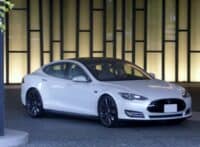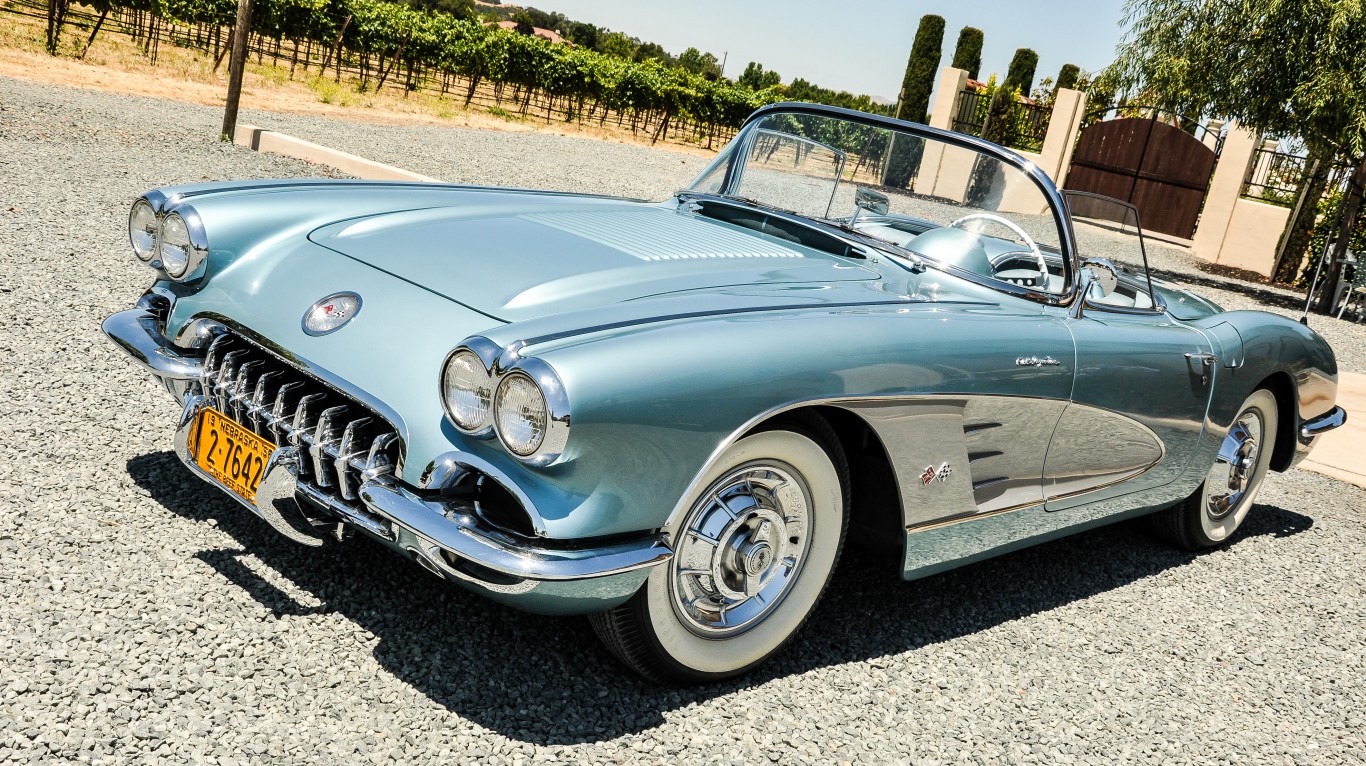
Throughout American automotive history, a select few cars have had the style, consistency, and staying power to qualify as true icons. While other models have come and gone, these iconic vehicles have been the choice of U.S. drivers for generations.
These cars have become legendary for their design and their performance. Their manufacturers have also made sure to continually update them to keep them fresh, all without losing the qualities that made them so iconic in the first place. In many cases, these cars have been cruising American roads for more than 40 years.
24/7 Wall St. scoured the production lineups of America’s most prominent automakers to determine the cars that stand the test of time.
The vehicles on this list have managed to survive since at least the 1970s for one reason: people have kept buying them. Whether it is because they are cooler, safer, more dependable, or a better value, these vehicles had consistent demand over the years and helped keep the automakers afloat for decades — even as many other car brands have gone out of business. These are America’s oldest car brands.
The cars on this list likely predate many of the people driving them today, with their history stretching back to the 1970s, if not much earlier. These vehicles include sedans, trucks, hatchbacks, SUVs and more.
Yet the bulk of the vehicles that have survived the longest are in the luxury or sports car segment. Though these flashy autos may not outsell cheaper family cars, they create buzz and excitement and give their manufacturers an elevated status.
The designs of the sports cars that now feel iconic were once a huge gamble. In order to create a truly unique car, engineers and executives had to spend a long time devising innovative features and uncommon designs that would stand out from the crowd. While some of these designs panned out, American auto history is littered with unique concepts that drivers simply could not get on board with. These are history’s strangest car designs.
Click here to see cars that stand the test of time
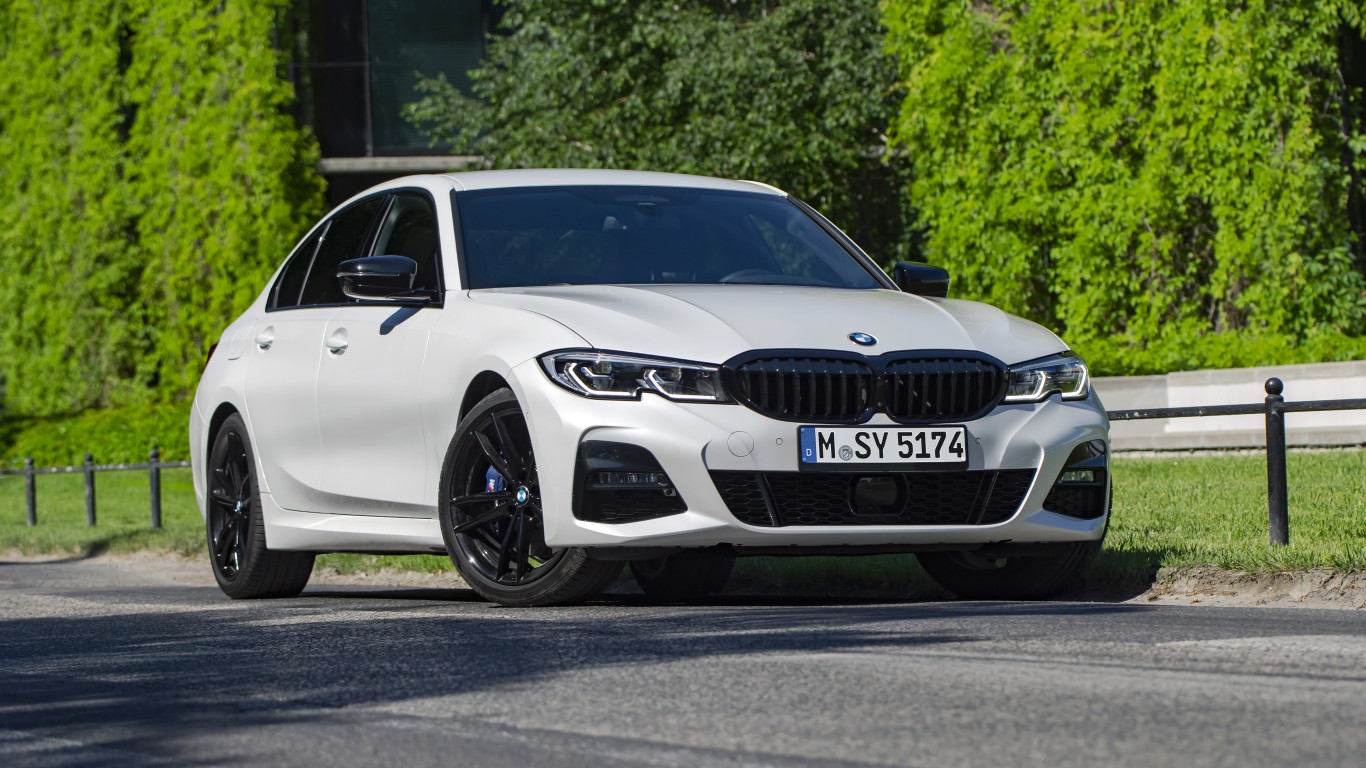
18. BMW 3-Series
> Year introduced: 1977
The BMW 3-Series has been cruising American roads for more than four decades, making it one of the longest-running models still sold in the U.S. market. Originally produced in 1975, BMW first began selling 3-Series vehicles in America in 1977. Across its seven generations, the 3-Series has been known for its adaptability. BMW has offered it in sedan, touring, coupe, Gran Turismo, M3, and more variations.
[in-text-ad]
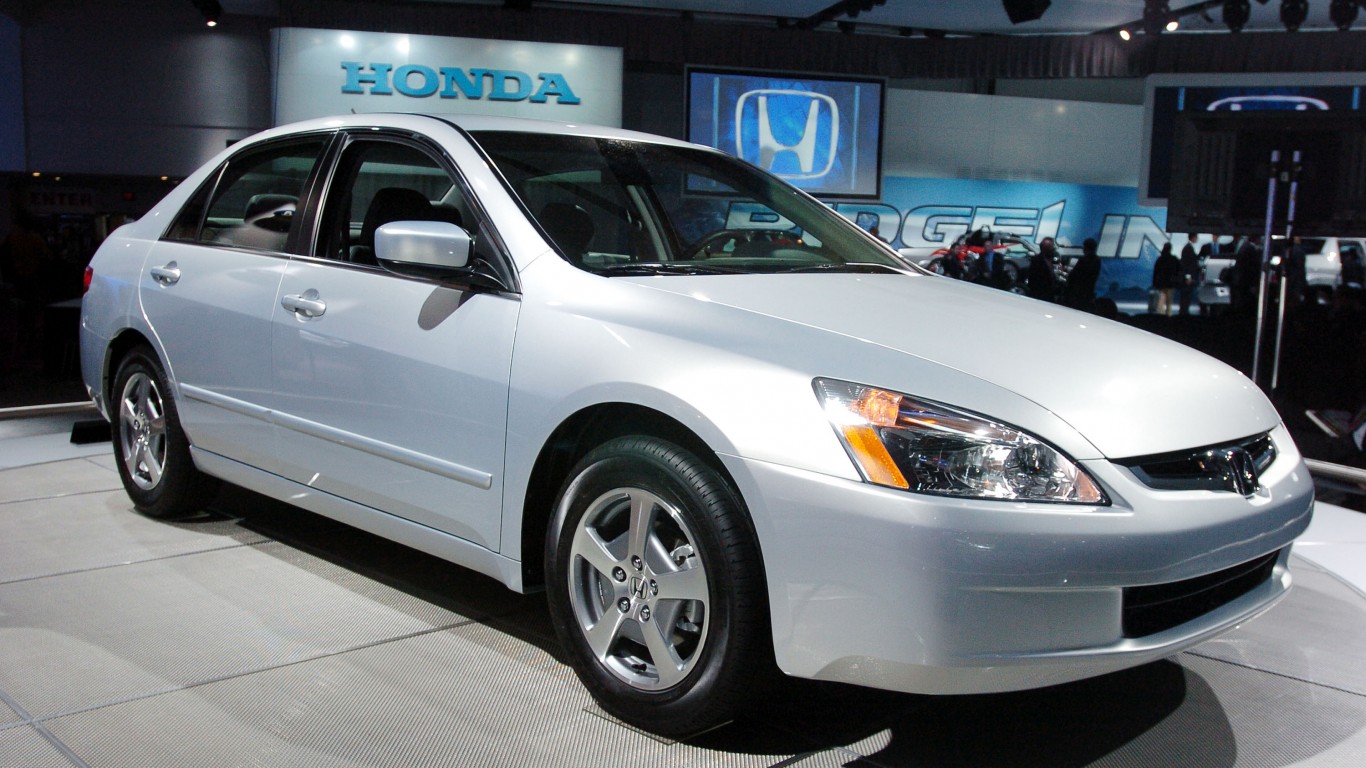
17. Honda Accord
> Year introduced: 1976
The Honda Accord hit the U.S. car market in 1976. It was designed to be fuel efficient amid the 1970s’ oil crisis. The first iteration of the Accord was a hatchback and Honda did not offer the now-familiar sedan style model until three years later. The Accord was America’s top selling car in four different years — 1989, 1990, 1991, and 2001 — selling around 400,000 units each of those years. The Accord’s sales have dipped from that peak in recent years, dropping below 200,000 sales in 2020 as consumer preferences shifted towards SUVs and crossovers, in addition to the reduced demand due to COVID-19.
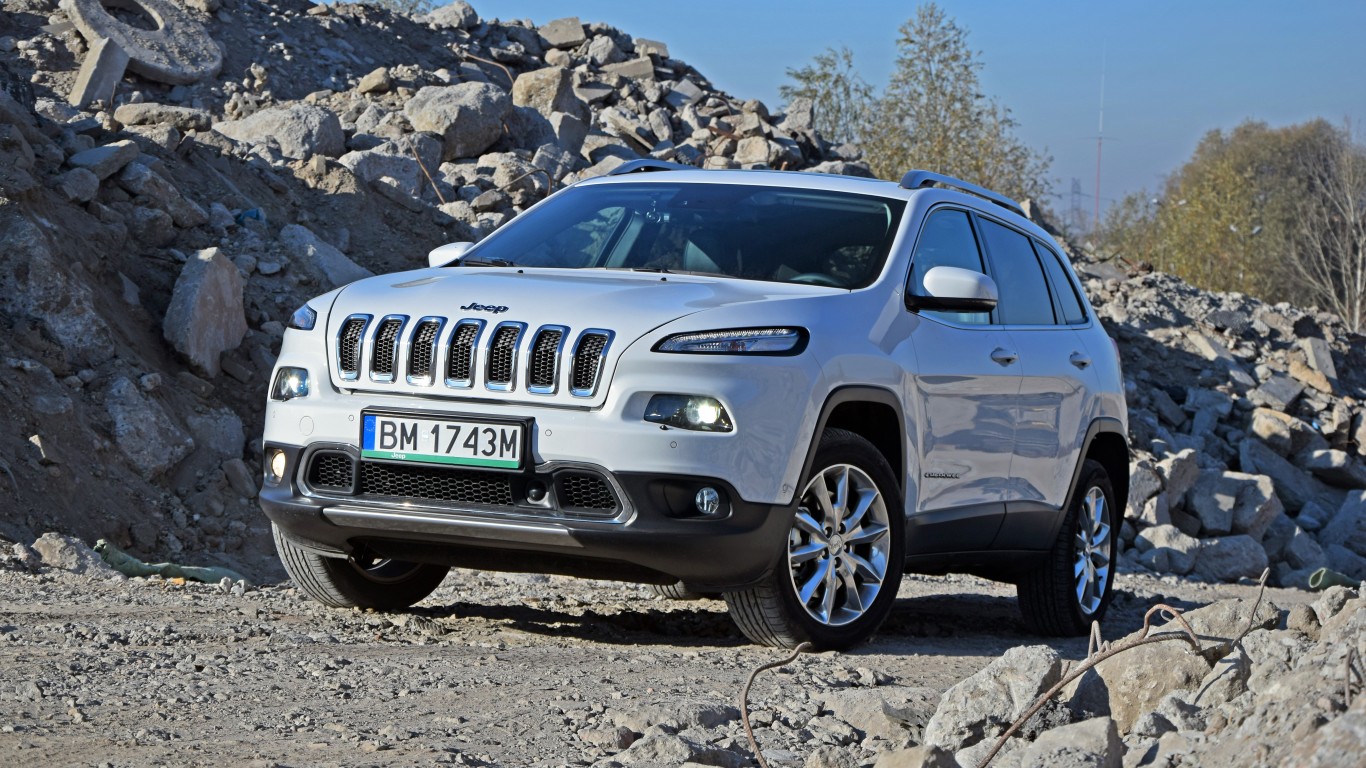
16. Jeep Cherokee
> Year introduced: 1974
The history of the Jeep brand dates back to World War II, when the U.S. Army used the Jeep’s forerunners as a new light reconnaissance vehicle. After the war, the Jeep was altered and introduced to civilians and became a popular auto brand. Jeep unveiled its longest-running model, the Cherokee, in 1974. The Cherokee was billed as the “youthful and sporty” successor to previous Jeep models like the CJ-5. The Cherokee has since undergone four refreshes, with its fifth generation debuting in 2014.
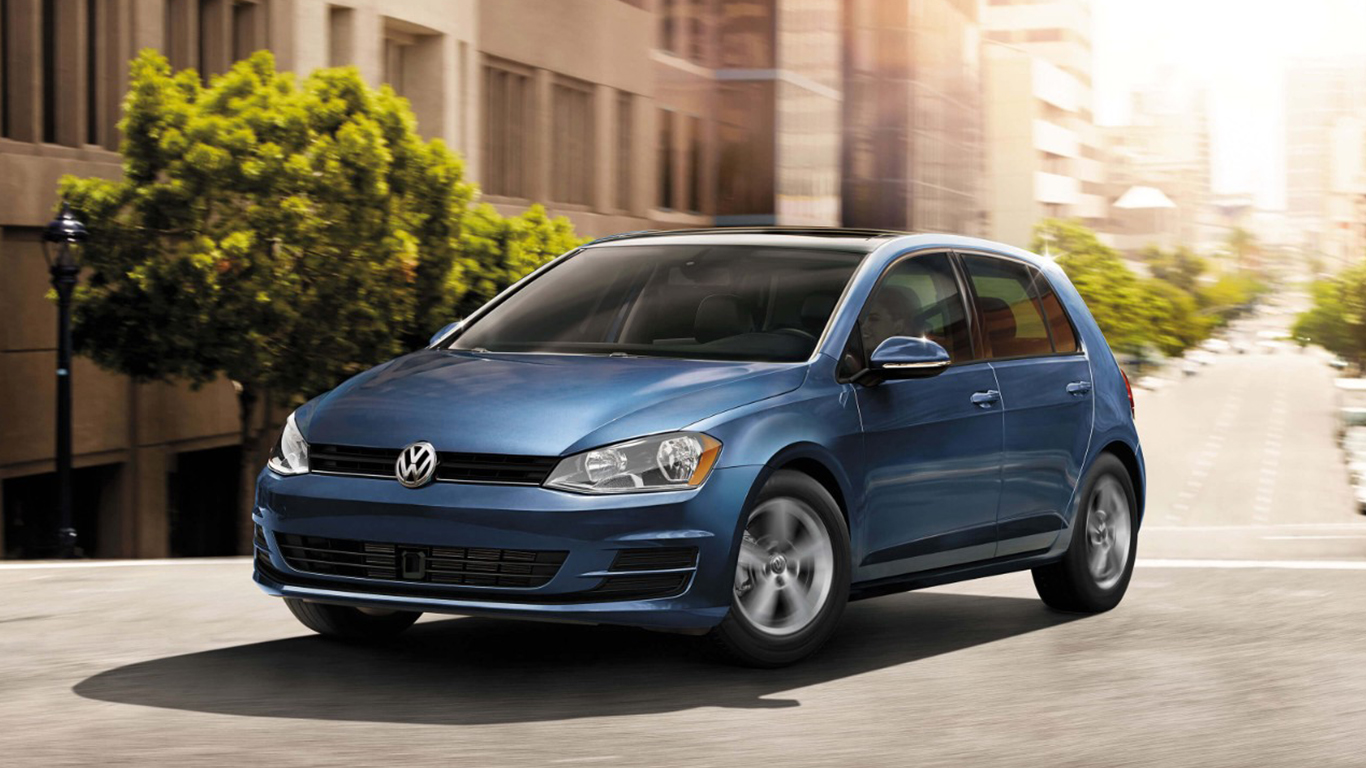
15. Volkswagen Golf
> Year introduced: 1974
Though Volkswagen’s Golf hatchback has been sold in the U.S. since 1974, the name Golf dates to 1985. Before that, it was known as the Rabbit. The German automaker’s vehicle had initially been introduced to the U.S. market to replace the Beetle. The Golf sold nearly 7 million models in its first generation from 1974 to 1983, and the brand is still going strong today, introducing its eighth generation in 2019.
[in-text-ad-2]
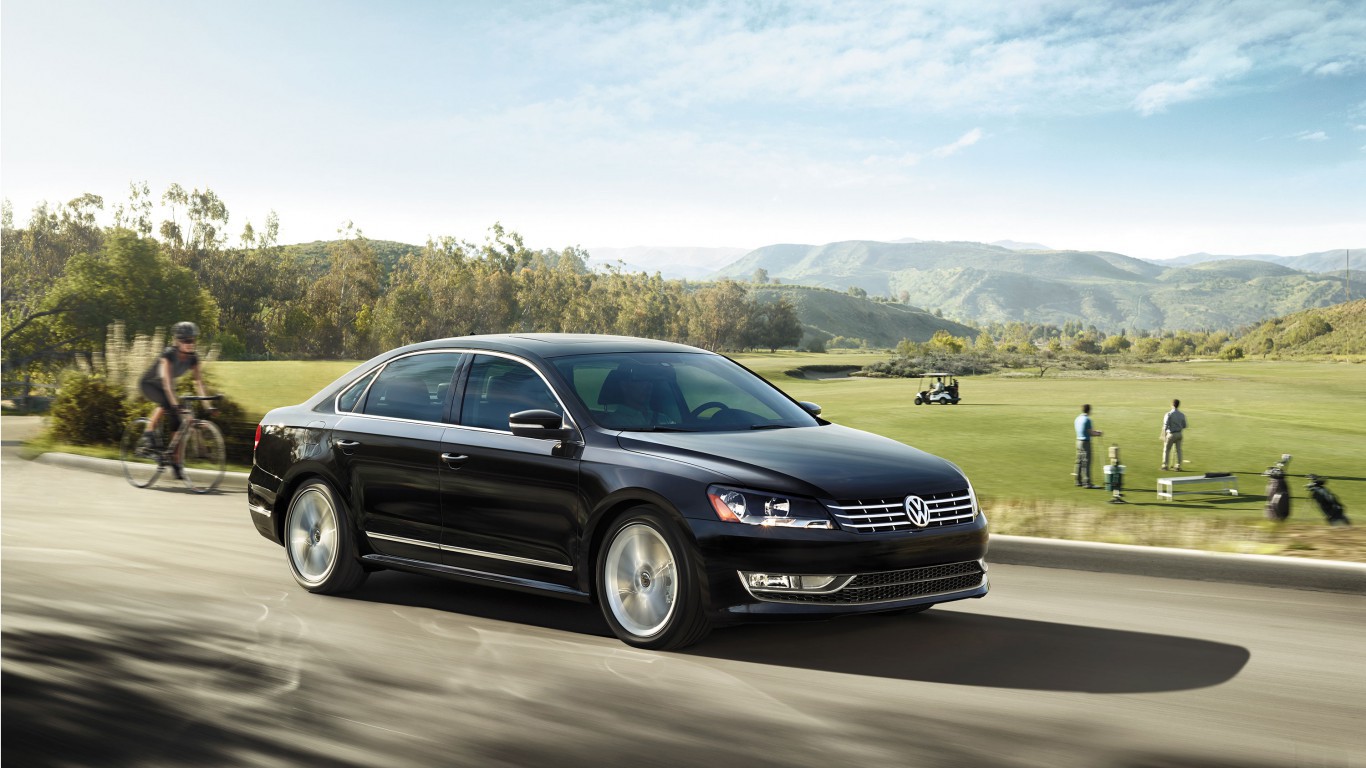
14. Volkswagen Passat
> Year introduced: 1973
Along with the small, sporty Golf, Volkswagen also rolled out a larger, family-focused model — the Passat. Named after the German word for trade wind, the original version of the Passat was called the Dasher in North America and was largely similar to the Audi 80. A later generation was known as the Quantum from 1982 to 1990, before the name was changed to Passat, the name used today.
Though the Passat has been available in the U.S. for more than four decades, it may not make it to a fifth. Volkswagen CEO Ralf Brandstätter said in 2020 the Passat would be discontinued in favor of SUVs at some point in the next decade.
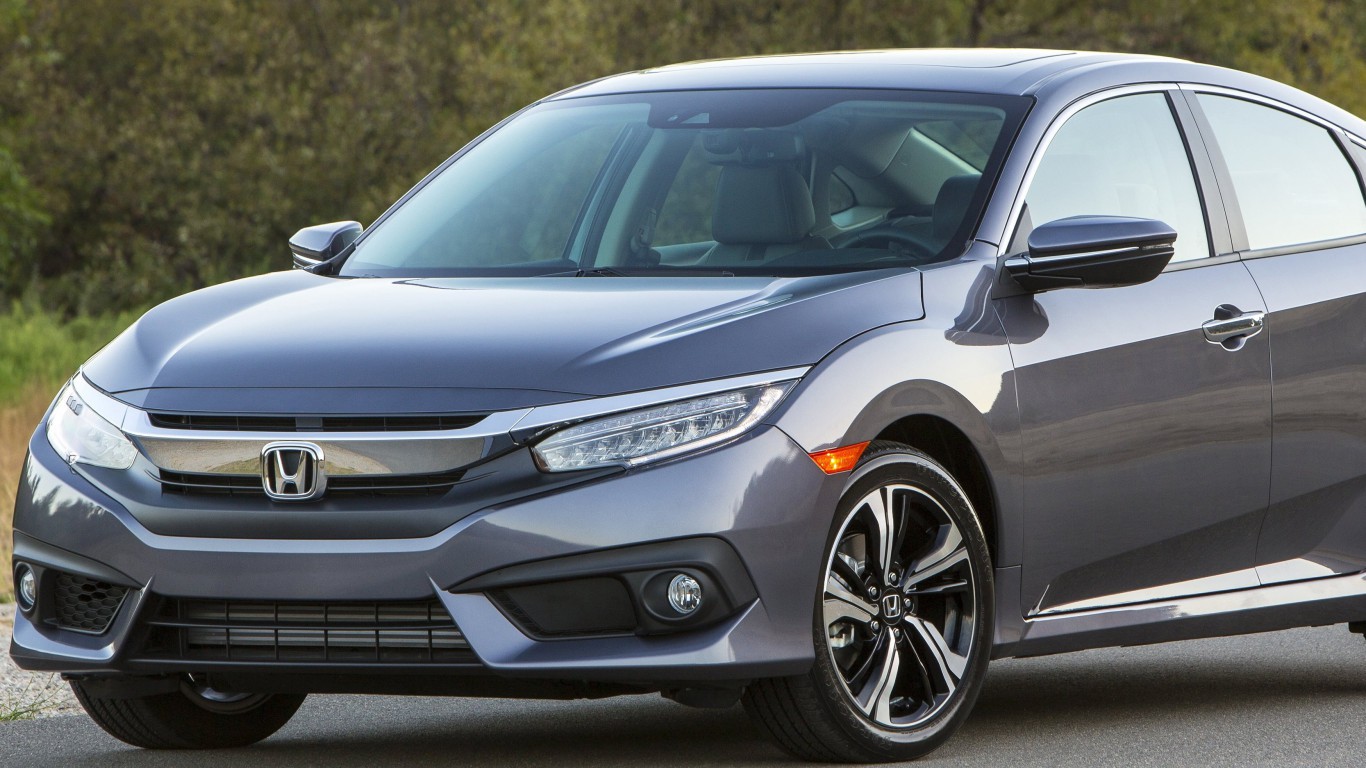
13. Honda Civic
> Year introduced: 1973
Along with the Accord, the Civic is one of two Honda models that have been selling in the U.S. since the 1970s. Also like the Accord, the Civic was introduced amid the 1970s’ oil crisis to give consumers a fuel efficient vehicle option with reduced emissions. The car has been a success ever since. Honda unveiled the 11th generation Civic in April 2021, with sales beginning later in the year.
[in-text-ad]
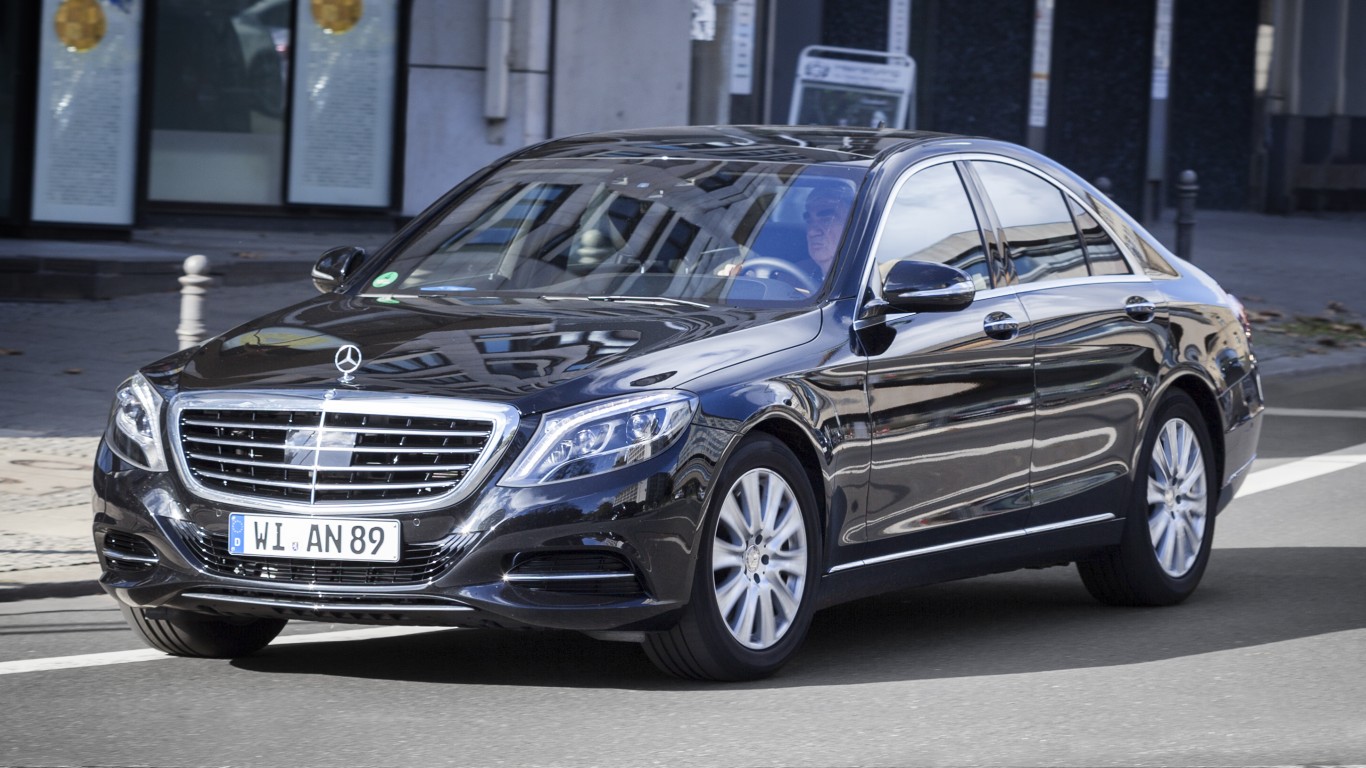
12. Mercedes-Benz S-Class
> Year introduced: 1972
Mercedes-Benz S-Class is a line of luxury sedans that have been rolling off German assembly lines onto American roadways since 1972. The S-Class brand covers all passenger cars from Mercedes-Benz. Though Mercedes-Benz and the S-Class are synonymous with luxury, the S-Class’s main contribution to the automotive world has actually been safety. The vehicle’s initial production run pushed forward innovations like a fuel tank shielded from collisions and a four-spoke safety steering wheel. In 1978, it became the first mass-produced car with antilock brakes.

11. Nissan Z
> Year introduced: 1969
The sporty Nissan Z series has more than 50 years of history on American roads. First introduced in 1969, before Nissan changed its name from Datsun, the Z series has been known for its sleek exteriors. The Z series went on hiatus after the end of the run of the 300ZX in 1996, but the nameplate was revived in 2003, with the introduction of the 350Z. The seventh generation ended its production in 2020 with the 370Z. The eighth generation of the Z will be known as the Nissan Z Proto.
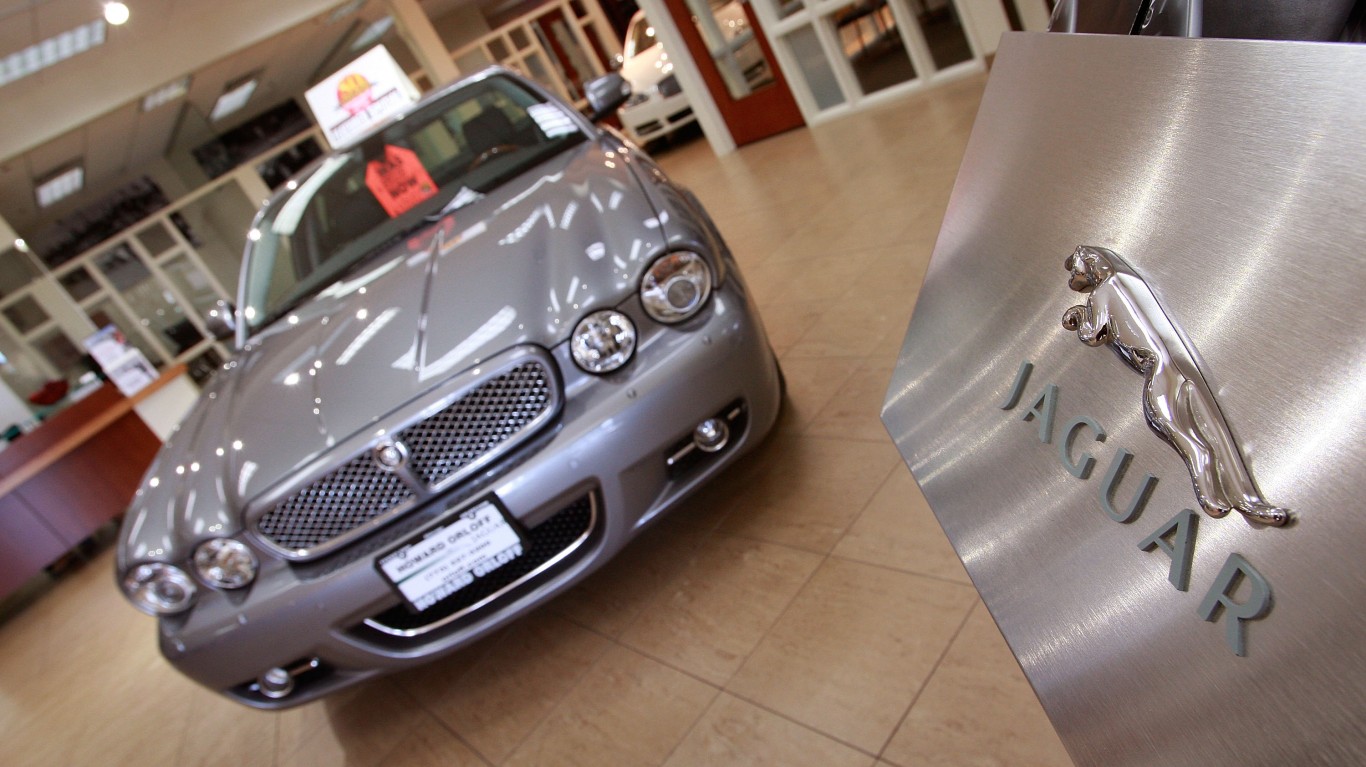
10. Jaguar XJ
> Year introduced: 1968
The XJ has been Jaguar’s flagship model for more than 50 years. The British luxury automaker first rolled its sedan off the line in 1968. Its look became so iconic that it remained virtually unchanged for years. In 2021, Jaguar is debuting its first all electric XJ.
[in-text-ad-2]

9. Toyota Corolla
> Year introduced: 1968
The Toyota Corolla is one of just eight cars sold in the U.S. market since the 1960s or earlier. Though it may not be the oldest nameplate, the Corolla is the most successful. With 44 million units sold, it is the best selling vehicle in U.S. auto history. When it was first introduced in 1968, the Corolla was a rear-wheel drive coupe. Now, in its 12th generation, drivers can buy Corolla sedans, hatchbacks, and station wagons.
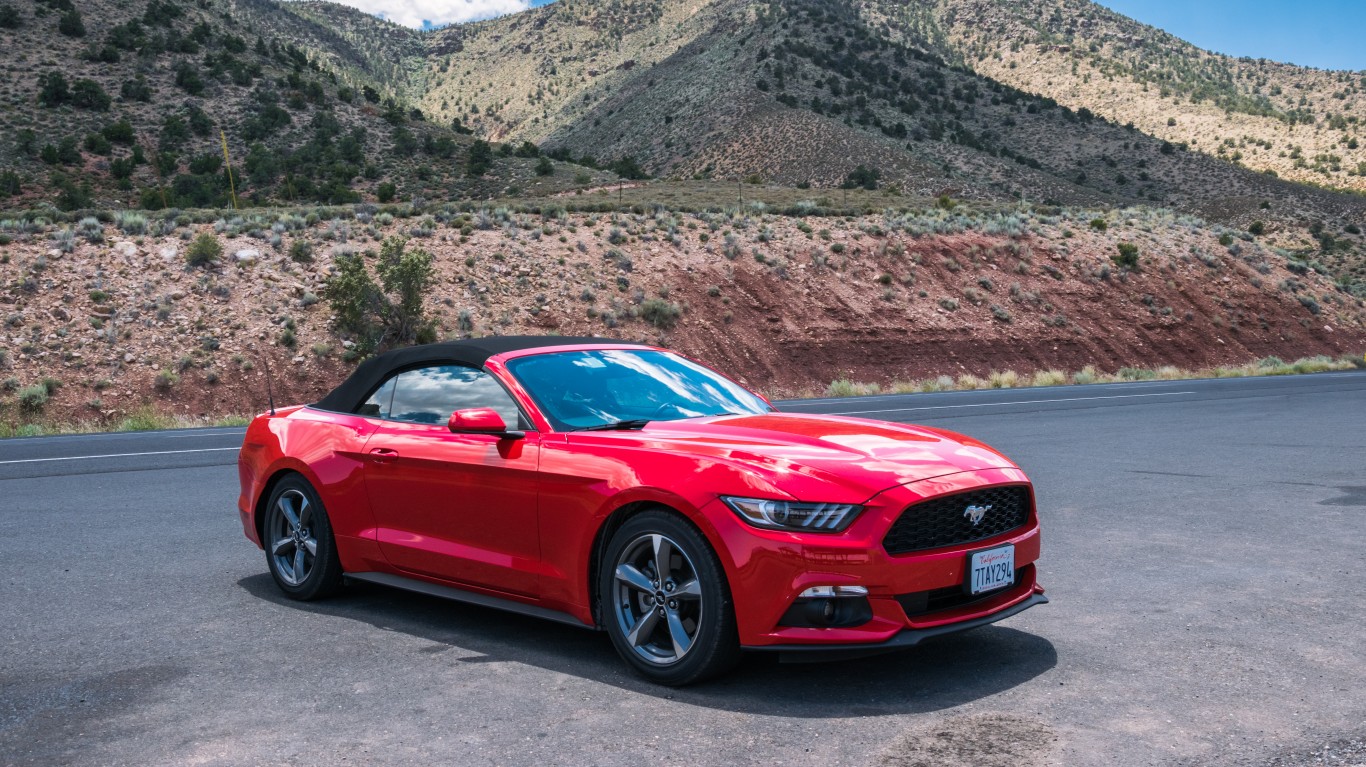
8. Ford Mustang
> Year introduced: 1964
Like many of the longest running car models in America, the Ford Mustang is an iconic sports car. It was developed by legendary Ford executive Lee Iacocca, who wanted to offer American drivers a vehicle under 2,500 pounds and under $2,500. First introduced at the World’s Fair in 1964, the Mustang was an instant smash hit, selling well over 400,000 units in its first year.
The car has transcended from a vehicle to a slice of Americana, appearing in movies, TV shows, and countless posters on the bedroom walls of teenagers. The Ford Mustang is still going strong in its sixth generation.
[in-text-ad]

7. Porsche 911
> Year introduced: 1963
Since 1963, the Porsche 911’s streamlined body has stood out as one of the most distinctive vehicles on the road. The vehicle was designed to replace Porsche’s venerable 356 model, though with the added practical features of a pair of backseat. Throughout 11 generations, the Porsche 911 has maintained its same silhouette and high-performance engine.
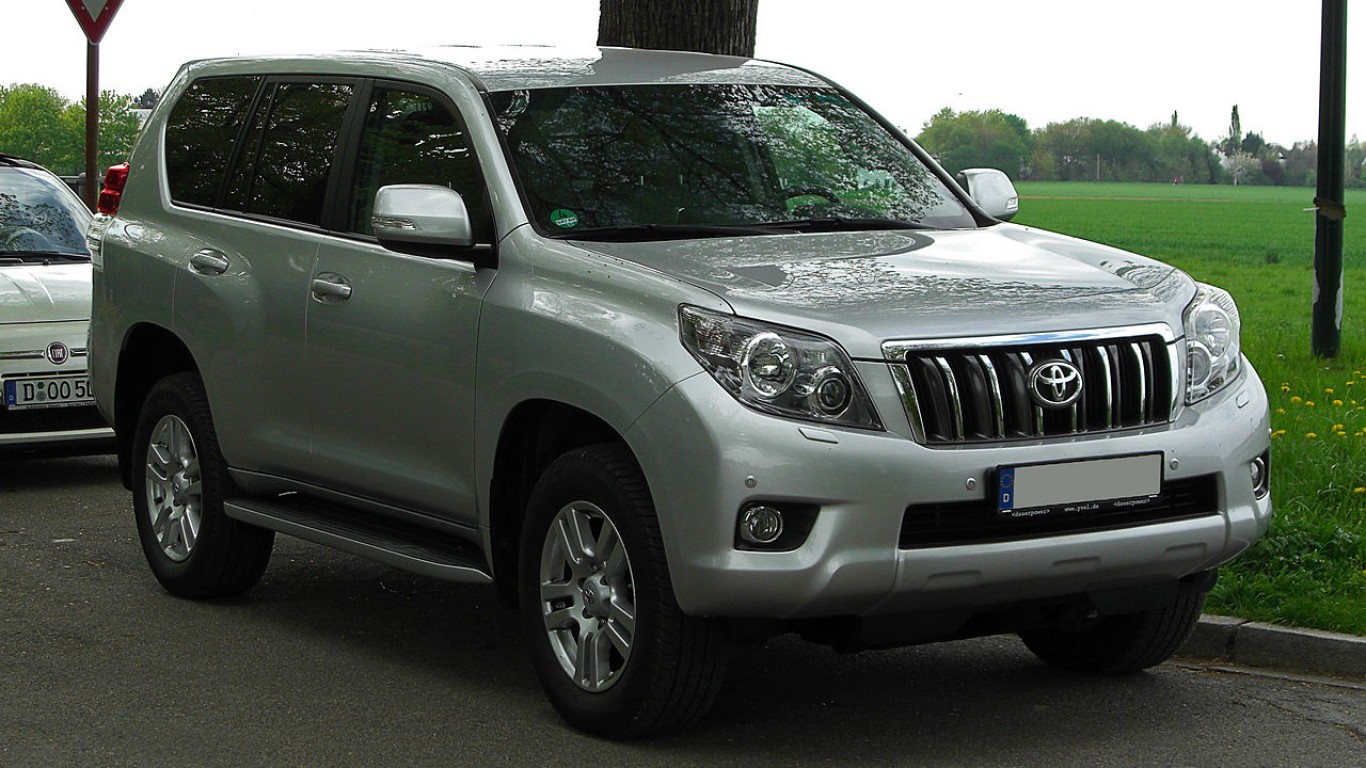
6. Toyota Land Cruiser
> Year introduced: 1958
Toyota managed to sell just a single Land Cruiser in the U.S. in 1958, the first year the Japanese automaker began exporting the SUV to America. The car eventually caught on in the U.S. and abroad, selling over 10 million vehicles worldwide throughout its history. Initially conceived for military use, Land Cruisers became more of a luxury model throughout the years. Toyota confirmed that it would discontinue the vehicle after the 2021 model year, though at least one dealer told Car And Driver that the nameplate could be revived sooner rather than later.

5. Mercedes-Benz SL
> Year introduced: 1954
The Mercedes-Benz SL began as a race car. The car, with its super light (SL) frame and turbocharged engine, began snapping up racing titles around the world in the 1950s. An American Mercedes importer thought Americans would like to drive a vehicle like that and brought over the Mercedes-Benz 300 SL Gullwing in 1954. After more than half a dozen refreshes and a few facelifts, the Mercedes-Benz SL still has the look and feel of a winning race car.
[in-text-ad-2]
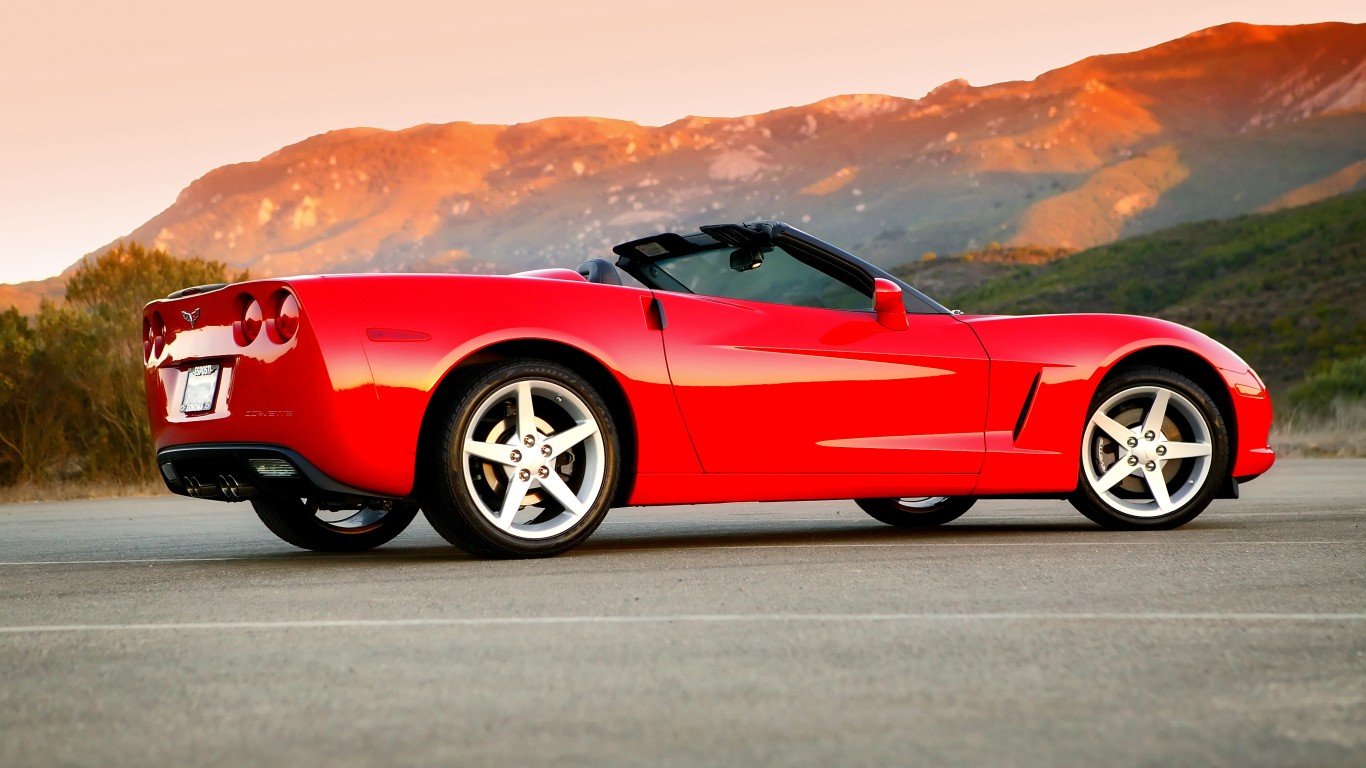
4. Chevrolet Corvette
> Year introduced: 1953
The Chevrolet Corvette is one of the three longest-running car models in U.S. history — all of which are American-made. The Corvette is the epitome of the American sports car, with its powerful nearly-500 horsepower engine and iconic sleek design. Its eighth and most recent generation, the C8, switched to a mid-engine layout, in line with other American sports cars.
Chevrolet has sold over 1.7 million Corvettes throughout its history. Though the Corvette’s sales cannot match those of other, cheaper, more family friendly cars, no car can match the Corvette’s cultural impact.
3. Volkswagen Transporter
> Year introduced: 1949
Sometimes known as the VW Bus, the Volkswagen Transporter has been in production since 1949, when the automaker needed a second vehicle to sell alongside its Beetle. In its over 70 years on the road, the Transporter has sold over 12 million units.
Volkswagen is rolling out its seventh generation of the Transporter for the 2022 model year — but only in Europe. American sales of the T7 are slated to begin in 2023.
[in-text-ad]
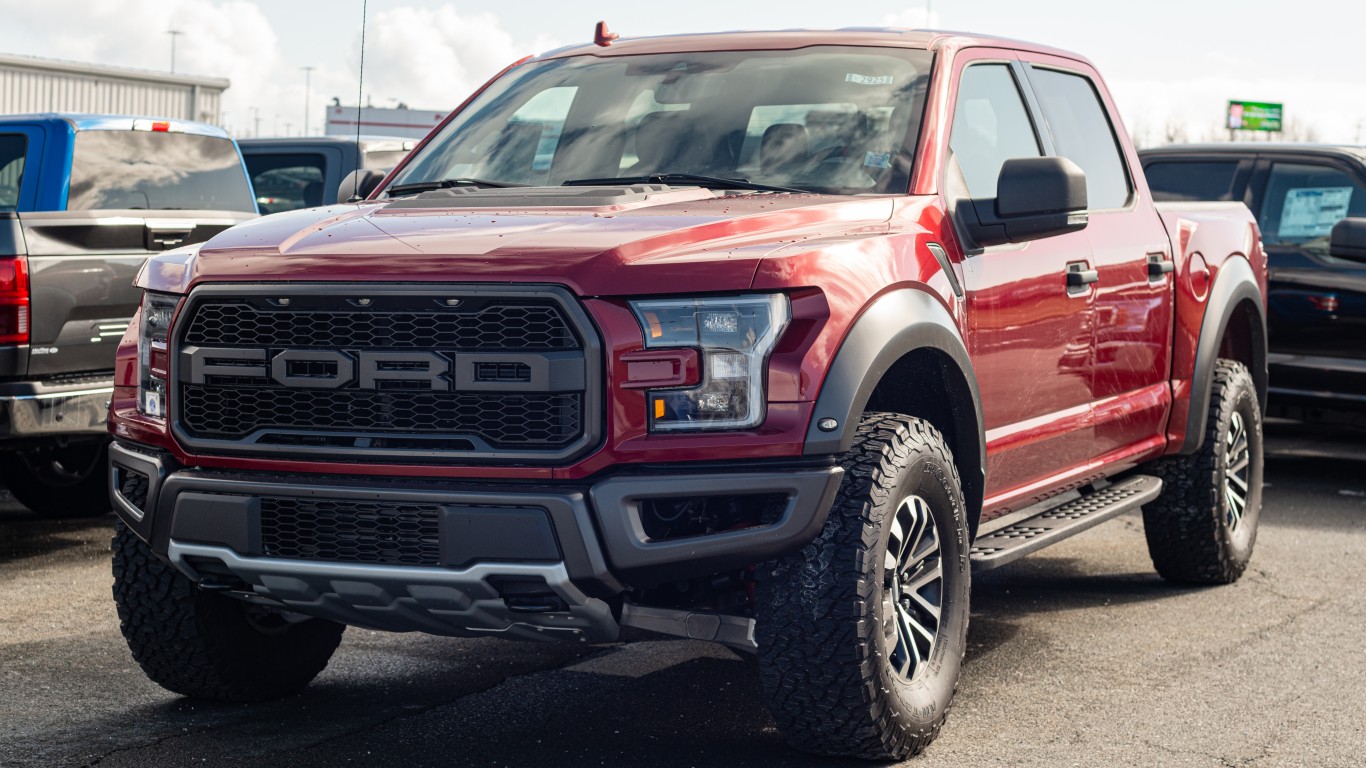
2. Ford F-Series
> Year introduced: 1948
The Ford F-Series, which includes the F-150, F-250, F-350, F-450, and more, has lasted since 1948. The F-Series has grown to dominate the U.S. auto market. It has been the best-selling vehicle in America every year since 1981. Even with a COVID-19-induced dip, Americans bought over 787,000 F-Series trucks in 2020, down from the nearly 900,000 the year before.
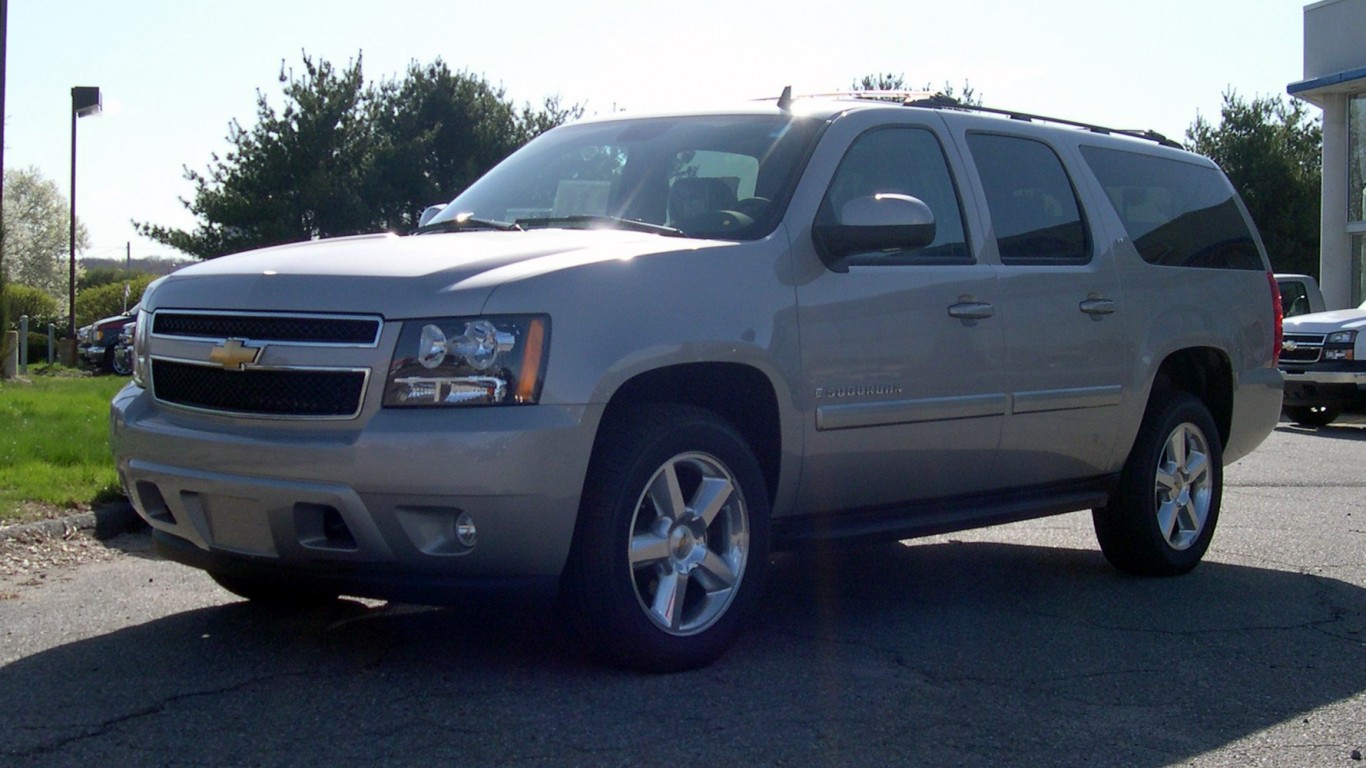
1. Chevrolet Suburban
> Year introduced: 1935
The Chevrolet Suburban is by far the longest-running car in American automotive history, first debuting in 1935 — more than a full decade earlier than any other surviving model. Early models were used by the military during World War II before the design started to resemble the large SUVs recognizable from today.
The Suburban is sometimes thought of as the first SUV, as it provided drivers with enough room to fit their entire family and their belongings by using a truck chassis and topping it with a passenger area. Chevrolet debuted the 12th generation of the Suburban in 2020.
It’s Your Money, Your Future—Own It (sponsor)
Retirement can be daunting, but it doesn’t need to be.
Imagine having an expert in your corner to help you with your financial goals. Someone to help you determine if you’re ahead, behind, or right on track. With SmartAsset, that’s not just a dream—it’s reality. This free tool connects you with pre-screened financial advisors who work in your best interests. It’s quick, it’s easy, so take the leap today and start planning smarter!
Don’t waste another minute; get started right here and help your retirement dreams become a retirement reality.
Thank you for reading! Have some feedback for us?
Contact the 24/7 Wall St. editorial team.
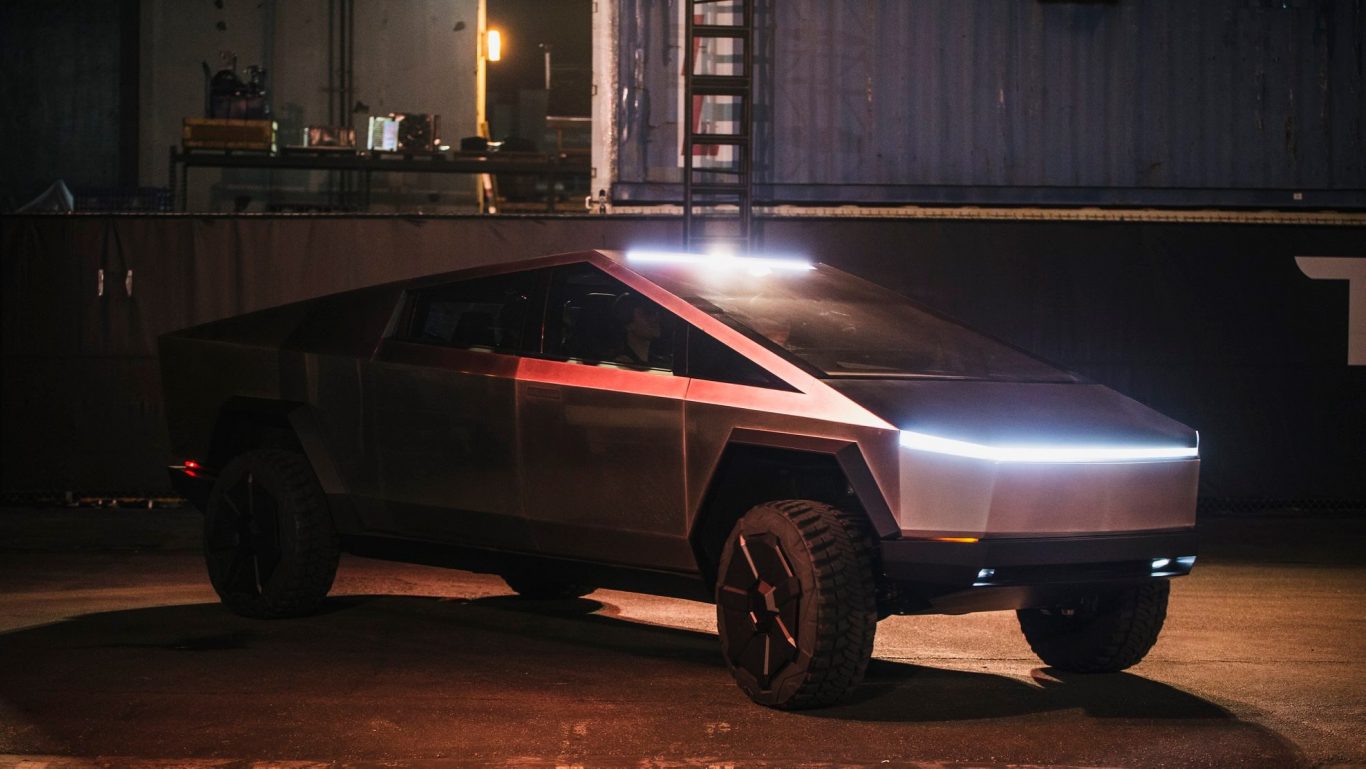 24/7 Wall St.
24/7 Wall St. 24/7 Wall St.
24/7 Wall St.
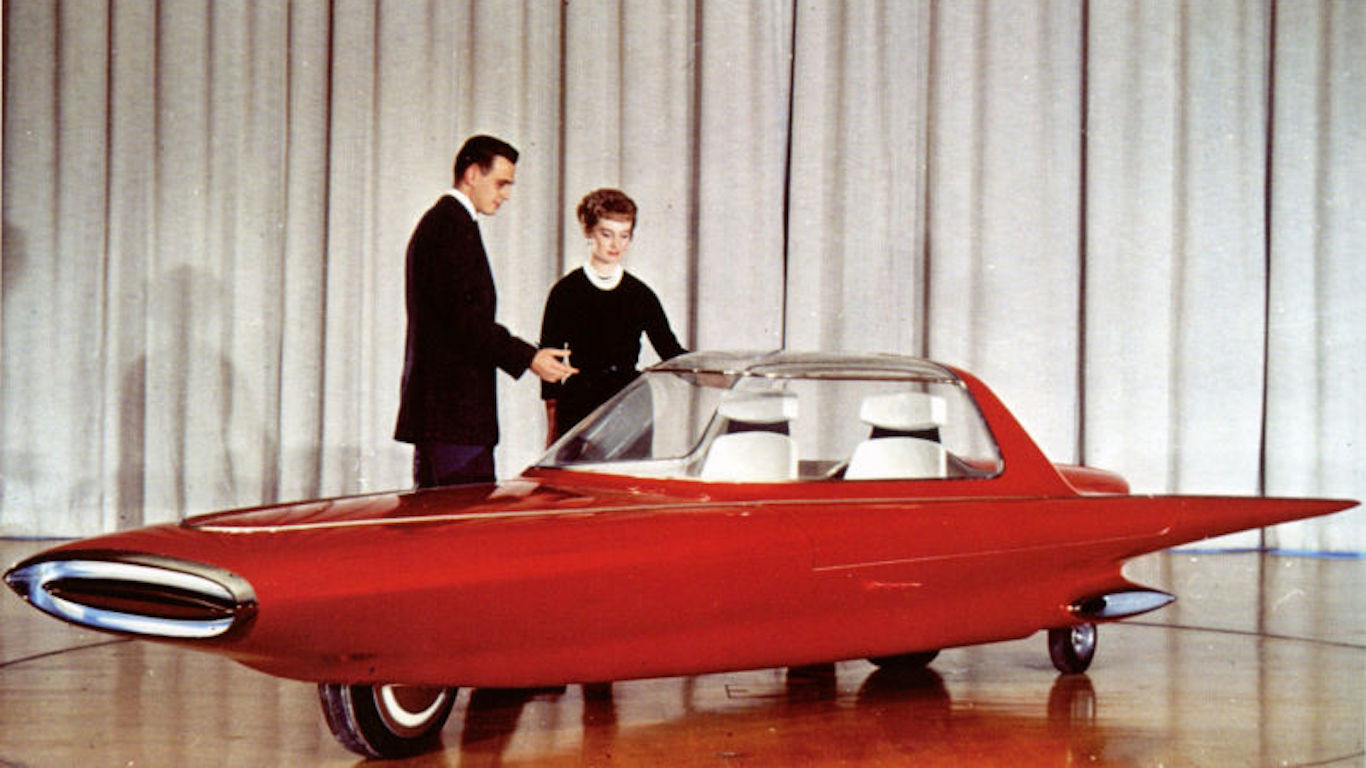 24/7 Wall St.
24/7 Wall St.
